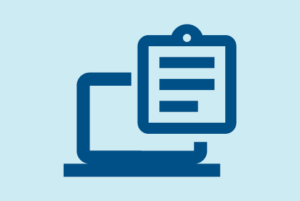The Centers for Medicare & Medicaid Services (CMS) has issued an interim final rule with comment period, requiring COVID-19 vaccinations for workers in most health care settings that receive Medicare or Medicaid reimbursement, including but not limited to hospitals, dialysis facilities, ambulatory surgical settings, home health agencies, and long-term care facilities.
The interim final rule is effective Nov. 5, and comments are due to CMS by 2 p.m. (PT) on Jan. 4. Key provisions of the rule are summarized below.
Applicability
The rule applies to employees regardless of whether their positions are clinical or non-clinical and includes all current staff, new staff, licensed practitioners, physicians with admitting privileges, students, trainees, and volunteers who work at a covered facility. Additionally, this also includes individuals who provide care, treatment, or other services for the facility and/or its patients under contract or other arrangements (e.g., home health, home infusion therapy, etc.).
Deadlines
Facilities covered by this regulation must establish a policy to ensure all eligible staff have received the first dose of a two-dose COVID-19 vaccine or a one-dose COVID-19 vaccine prior to providing any care, treatment, or other services by Dec. 5. All eligible staff must have received the necessary shots to be fully vaccinated — either two doses of Pfizer or Moderna or one dose of Johnson & Johnson — by Jan. 4.
Exemptions
The regulation provides for exemptions based on recognized medical conditions or religious beliefs, observances, or practices, and facilities must develop a similar process or plan for permitting exemptions in alignment with federal law. Facilities have the flexibility to establish their own processes that permit staff to request a medical or religious exemption from the COVID-19 vaccination requirements, but CMS requires facilities to ensure that requests for religious exemptions are documented and evaluated in accordance with applicable federal law and as a part of a facility’s policies and procedures. Staff who have previously had COVID-19 are not exempt from these vaccination requirements.
Enforcement and Compliance
CMS will work directly with the state survey agencies to regularly review compliance with Medicare/Medicaid regulations across multiple health care settings. Medicare and Medicaid-certified facilities are expected to comply with all regulatory requirements. CMS has a variety of established enforcement remedies. For nursing homes, home health agencies, and hospice (beginning in 2022), this includes civil monetary penalties, denial of payment, and even termination from the Medicare and Medicaid program as a final measure. The remedy for non-compliance among hospitals and certain other acute and continuing care providers is termination. However, CMS surveyors cite hospitals and other facilities based on the severity of deficiency, classified among three levels, from most to least severe: “Immediate Jeopardy,” “Condition,” and “Standard.” In all cases, health care facilities have an opportunity to return to compliance before termination.
A CMS FAQ document is available with more information.
Additionally, the Department of Labor’s Occupational Safety and Health Administration (OSHA) issued an emergency temporary standard to implement an interim final rule with comment period, requiring all employers with 100 or more employees to require that their employees be vaccinated or undergo mandatory weekly testing. The interim final rule is effective Nov. 5. Comments are due to OSHA by 2 p.m. (PT) on Dec. 6.
OSHA has posted FAQs and additional compliance resources with more information.
CHA is analyzing the impact this has on hospitals and will provide additional details in CHA News.


